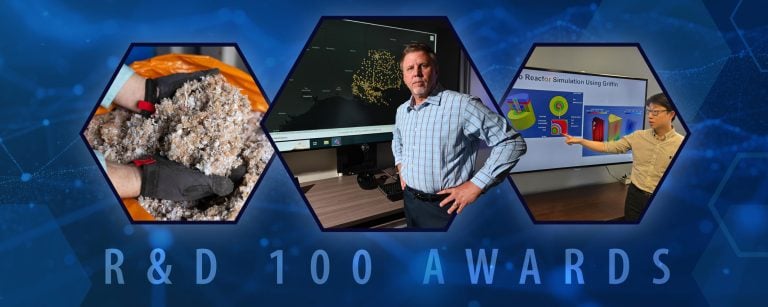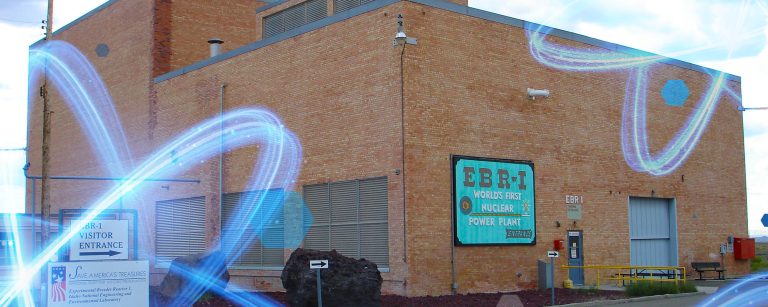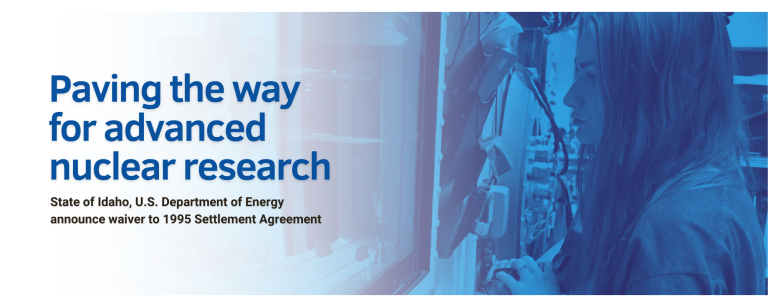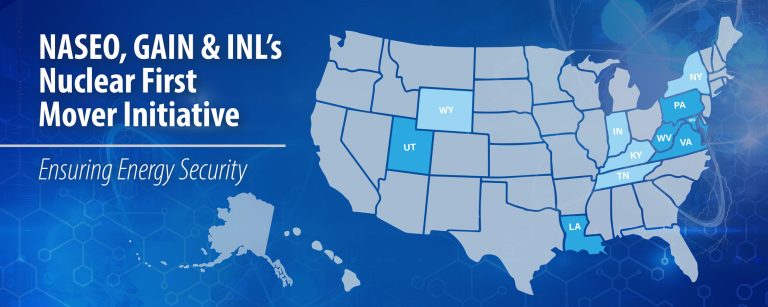
Over three decades in the United States nuclear industry, Monica Regalbuto has worn many different hats: researcher, manager and policymaker.
In recognition of her accomplishments, Regalbuto was recently named a Fellow of the American Nuclear Society, the highest recognition the organization gives. The nomination came from INL Director John Wagner, who wrote, “Dr. Regalbuto is an accomplished professional with an impeccable resume, but she also is a wonderful mentor, generous with her time and knowledge, a team player, possessing of great strategic vision, and determined to succeed.”
Today, as head of Idaho National Laboratory’s Nuclear Fuel Cycle Strategy, Regalbuto is responsible for ensuring there will be an adequate supply of High-Assay Low-Enriched Uranium (HALEU) fuel, which smaller advanced reactors will need to generate more power per unit of volume than the existing fleet of commercial reactors. “We’re very intentional about what we do,” she says. “We know what we’re good at, and we know when we need to partner and with whom. We set the stage, and we execute.”
The ANS nomination form asks for up to three of a nominee’s major professional accomplishments. For Regalbuto, they were the following:
-
While she was DOE’s assistant secretary for the Office of Environmental Management from 2015 to 2017, she accelerated cleanup efforts at the Oak Ridge and Savannah River sites and managed the reopening of the Waste Isolation Pilot Plant facility in New Mexico, the repository for low-level waste that had been closed after an accident in 2014.
-
As deputy assistant secretary for DOE Nuclear Energy Fuel Cycle Technologies, Regalbuto led a series of technical studies that informed national policy decisions and reinvigorated the national program for the management and disposal of used nuclear fuel and high-level radioactive waste.
-
She worked on developing the technology to remove radioactive cesium from 34 million gallons of high-level waste stored at the Savannah River site. In October 2020, Parsons Corporation opened a commercial facility in Aiken, South Carolina, that uses the technology. At the ribbon cutting in Aiken, Regalbuto said she could hardly believe it. “People go their whole careers without seeing their work commercialized,” she said.
From Mexico to the U.S.
Born in Mexico, she attended Instituto Tecnológico de Estudios Superiores de Monterrey, where she earned a bachelor’s degree in chemical engineering. She came to the United States to continue her studies at Notre Dame, earning her master’s and doctorate in chemical engineering.
After graduation, she joined Argonne National Laboratory near Chicago, where she supported development of technologies to treat high-level radioactive waste. She remained there until 1996 when, wanting to get experience in the private sector, she joined BP Amoco, for whom she managed projects, including ways to lower sulfur levels in gasoline. Low-sulfur fuels have been identified as the key to reducing emissions from existing vehicles and making fuel-efficient, less polluting new vehicles.
Regalbuto returned to Argonne in 2001 and became head of process chemistry and engineering, working on technologies for treating used nuclear fuel. She was detailed at DOE-EM in 2008 as senior program manager in waste processing. While there, Regalbuto also supported the three-year Massachusetts Institute of Technology study on the future of the nuclear fuel cycle with an emphasis on spent fuel disposal from economic risk and other factors.
‘Policy takes stamina’
“She gained the reputation as someone who could cut through the usual delays and debates and get things done,” said William Magwood IV, a former DOE assistant secretary and now director general of the Organization for Economic Co-operation and Development. “The American taxpayers will likely never know the extent of the time and money saved.”
Very little happens quickly in the nuclear energy world, and as an expert policy maker, Regalbuto recognizes that there are some things that she may not see happen in her lifetime. “Policy takes stamina,” she said. “It has to have real social impact, independent of politics, and be well thought out. It’s really rewarding that I have the privilege to work with very talented people and use technology to influence policy that supports the environment, the economy and a person’s quality of life.”
ANS Section Awards
Four other INL employees were honored by ANS this year as well.
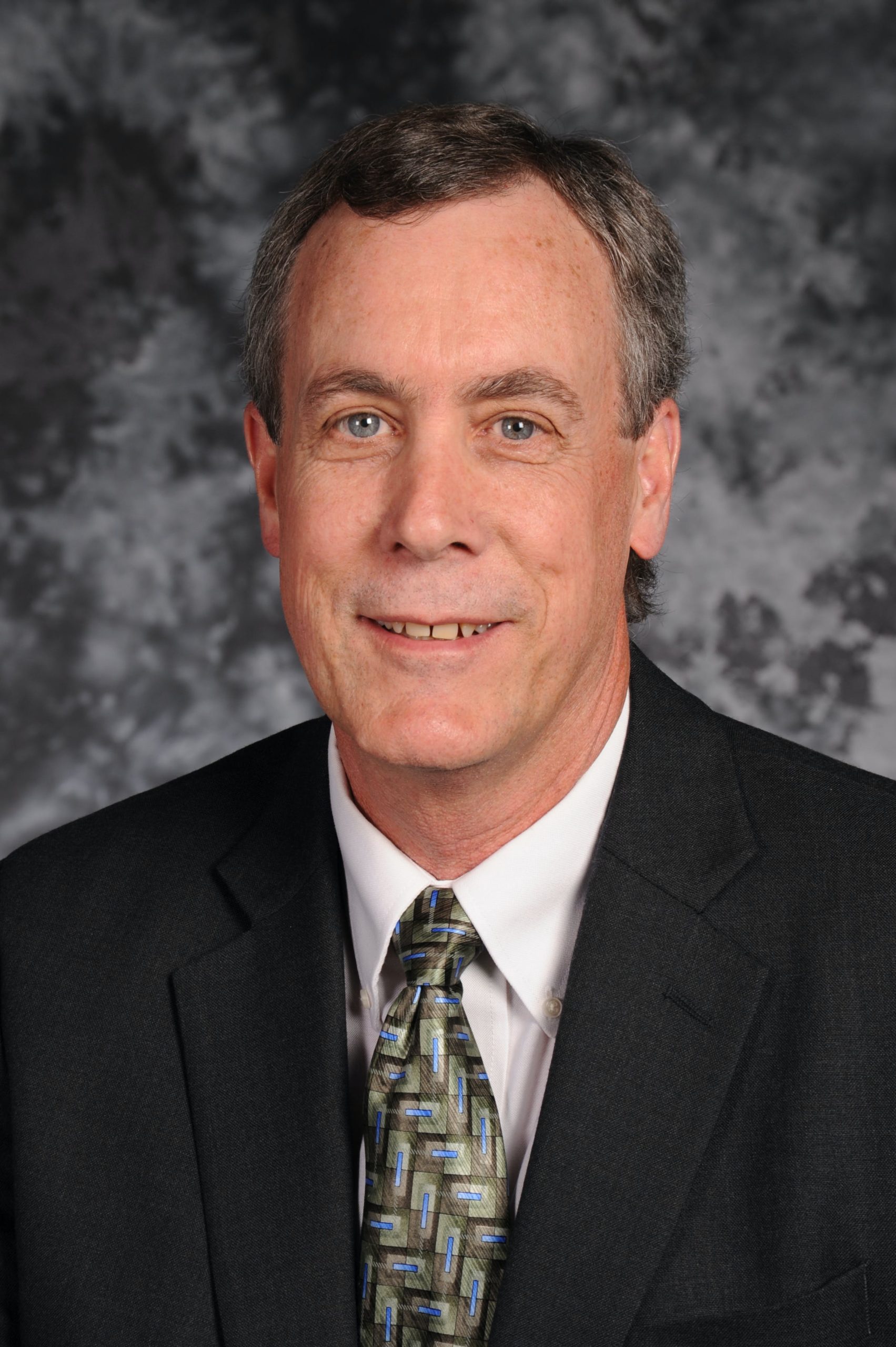
Terry Todd and Jack Law were both honored in the Fuel Cycle and Waste Management Division –Todd with the Lifetime Achievement Award and Law with the Distinguished Service Award.
Both collaborated with Regalbuto on the radioactive cesium process. Todd is currently directing a research program focused on recycling and recovering highly enriched uranium from spent nuclear fuel. For DOE’s Office of Nuclear Energy, he helped craft a plan for restructuring the National Isotope Program. As a result, management and leadership at multiple national laboratories have transitioned under the program from DOE to DOE contractors. His work on removing hazardous and radioactive materials from drinking water, groundwater and waste streams was recognized with a 2006 R&D 100 Award and a Nano 50 Award by NASA TechBriefs.
“I think the main benefit to my career from being an active ANS member is the opportunity to network with a broad set of industry professionals that I normally wouldn’t get,” Todd said. “We work closely with universities and other national labs on research, but at ANS, and in particular the Fuel Cycle and Waste Management Division, we get the opportunity to network with regulators and industry and expand our network in the R&D space as well.”
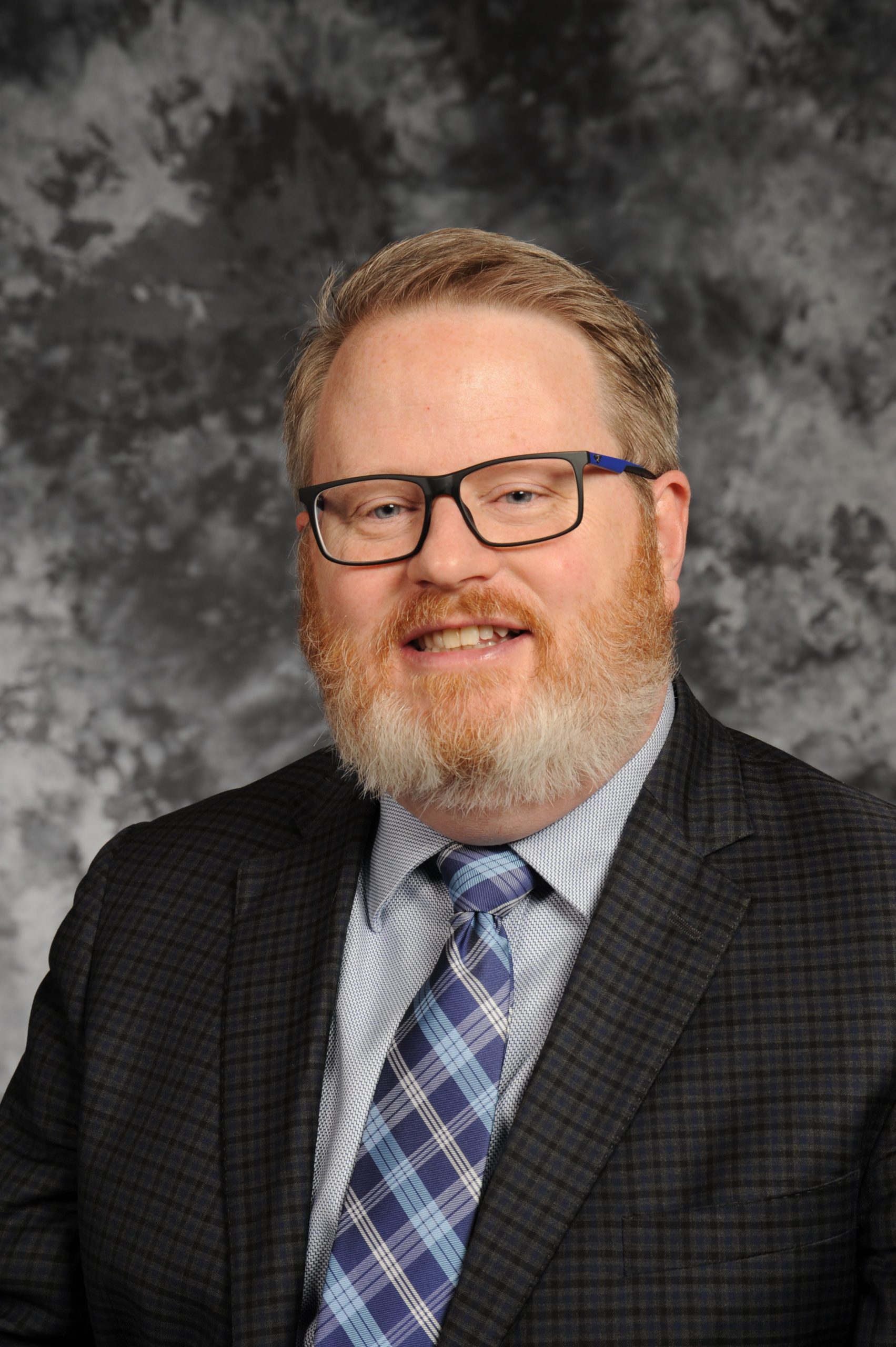
In his own letter supporting Law’s ANS Distinguished Service Award, Todd mentioned Law’s dedication to ANS, organizing and chairing two or three meeting sessions each year, including the University Research in Fuel Cycle and Waste Management session and the Advanced Fuel Cycle Award session.
In his 37-year career, Law said the most gratifying aspect has been helping students and people who are just starting their careers. “It’s good for them to present, and gets them excited about ANS as well,” he said.
Ron Boring and Sacit Cetiner were honored with two ANS Human Factors Instrumentation & Controls Division awards. Cetiner, a senior researcher with INL’s Versatile Test Reactor program, received the H.M. Hashemian Mid-Career Award for his outstanding contribution to nuclear instrumentation and control. Boring, manager for INL’s Human Factors and Reliability Department, received the Don Miller Award, which recognizes lifetime outstanding work in human factors for nuclear systems.
“I’m extremely honored to be recognized by ANS for the work my team and I have done to update control rooms in nuclear facilities,” Boring said. “This is such important work at the intersection of automation and humans, and I’ve been lucky to have such great co-workers at INL over the years to help advance future operations at nuclear power plants.”


